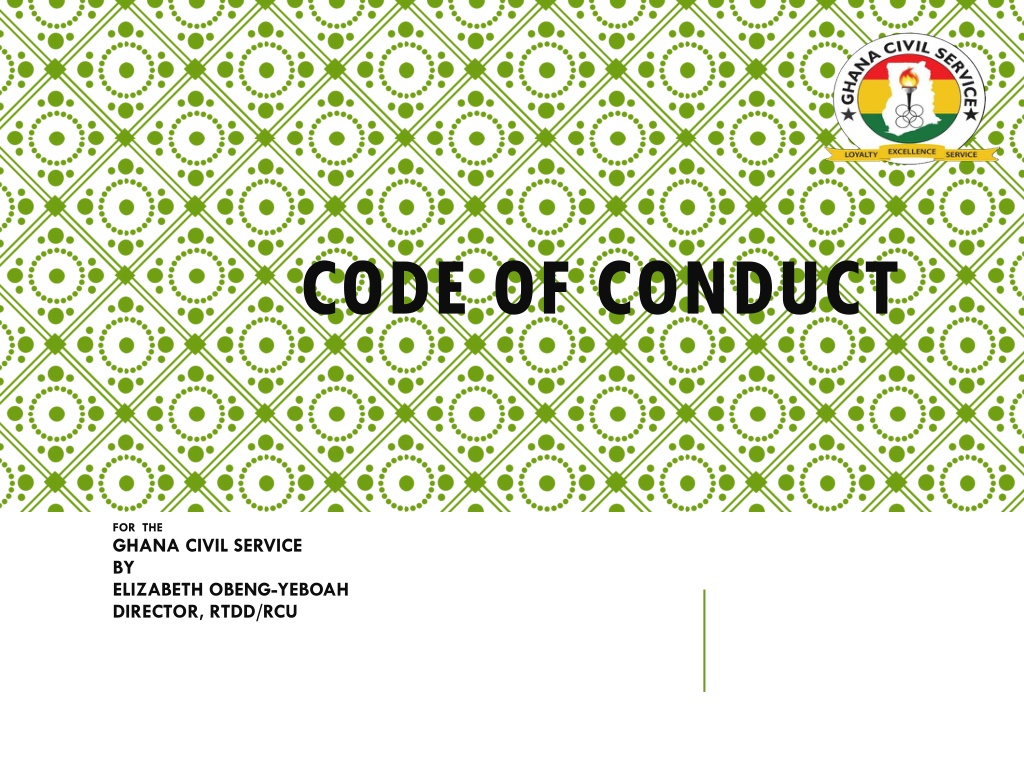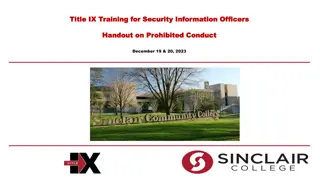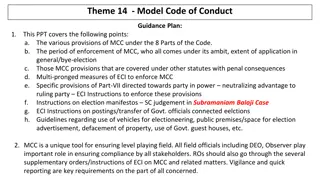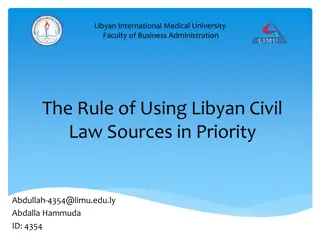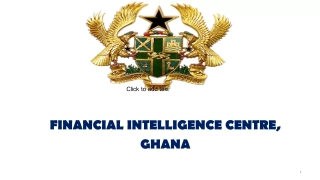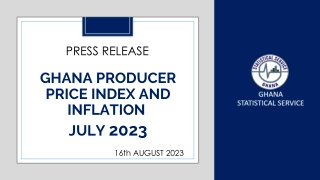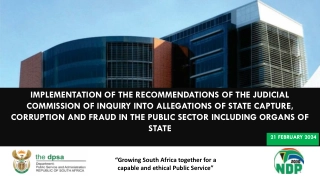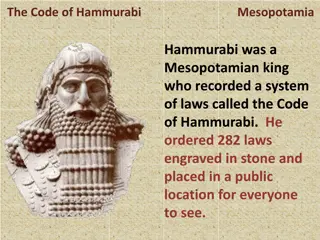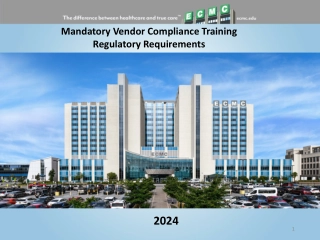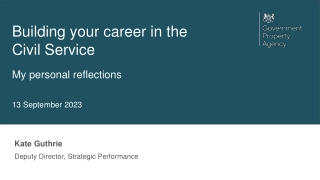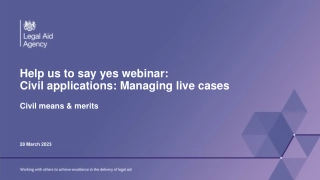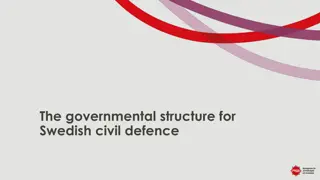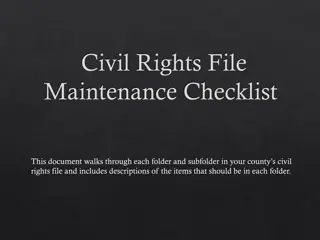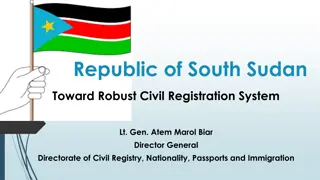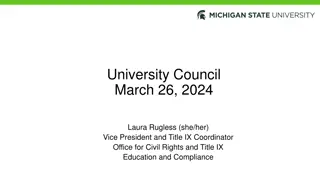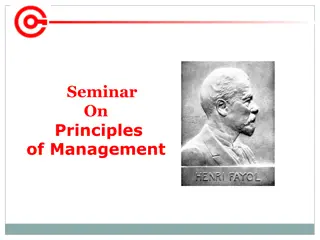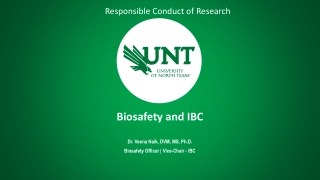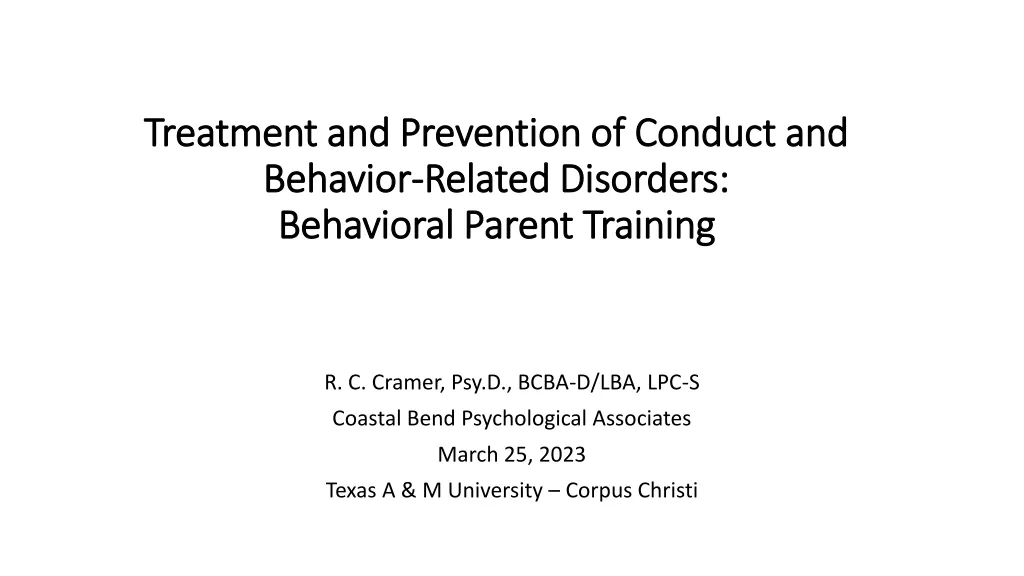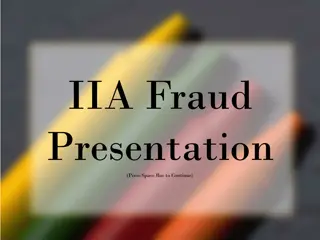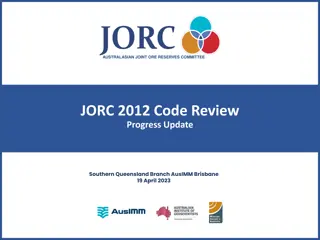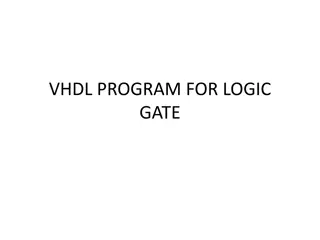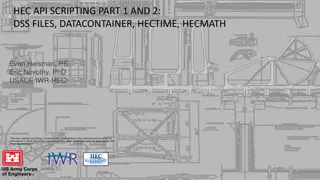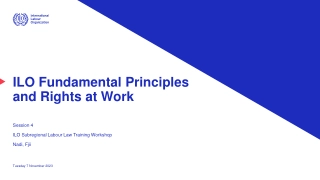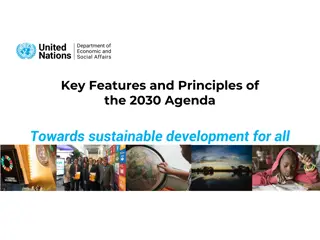Principles of the Ghana Civil Service Code of Conduct
The Code of Conduct for the Ghana Civil Service, outlined by Elizabeth Obeng-Yeboah, emphasizes principles such as abiding by the constitution and laws with dignity, integrity, and professionalism. It sets standards for conduct, avoiding conflicts of interest, maintaining political neutrality, and upholding guiding principles of public life. The code aims to promote good governance, project a positive image, and uphold self-esteem within the civil service. Staff are expected to apply these rules and principles effectively in their workplaces.
Download Presentation
Please find below an Image/Link to download the presentation.
The content on the website is provided AS IS for your information and personal use only. It may not be sold, licensed, or shared on other websites without obtaining consent from the author. Download presentation by click this link. If you encounter any issues during the download, it is possible that the publisher has removed the file from their server.
Presentation Transcript
CODE OF CONDUCT FOR THE GHANA CIVIL SERVICE BY ELIZABETH OBENG-YEBOAH DIRECTOR, RTDD/RCU
CONTENT GENERAL PRINCIPLES OF THE CODE PRINCIPLE 1 ABIDING BY THE CONSTITUTION AND LAWS OF GHANA WITH DIGNITY, INTEGRITY AND PROFESSIONALISM PRINCIPLE 2 ADHERING TO APPROPRIATE STANDARDS WITH HONESTY AND EFFICIENCY PRINCIPLE 3 REFRAINING FROM BRINGING THE CIVIL SERVICE INTO DISREPUTE PRINCIPLE 4 AVOIDING CONFLICT OF INTEREST PRINCIPLE 5 MAINTAINING POLITICAL NEUTRALITY IN THE PERFORMANCE OF ONE S OFFICIAL DUTIES PRINCIPLE 6 ADHERING TO THE GUIDING PRINCIPLES OF PUBLIC LIFE MISCELLANEOUS PROVISIONS REPORTING PROCEDURE DISCIPLINARY PROCEDURE/PENALTIES REWARDS RESPONSIBLITIES FOR IMPLEMENTATION 26/03/2024 2
LEARNING OBJECTIVES To expose STAFF to some key provisions of the Civil Service Code of Conduct To equip STAFF with some important rules and regulations in the Ghana Civil Service. 26/03/2024 3
LEARNING OUTCOMES At the end of the session staff are expected to: Effectively apply the Rules and Principles in their workplaces 26/03/2024 4
INTRODUCTION The Code of Conduct is the Standards and norms of behavior prescribed within a framework for promoting good governance, projecting good image and sustaining self-esteem of the Civil Service in both local and international circles. In other words, the code is to govern the conduct of officers and also set the standard for compliance by its employees It is primarily a guide to Civil Service staff in their normal relationships and dealings with their principal stakeholders, thus, the Government, Civil Service Organisations, and the general public However, provision has also been made for appropriate administrative sanctions to be applied where a Civil Service staff s conduct is found to be inconsistent with the Code 26/03/2024 5
PRINCIPLE 1 - ABIDING BY THE CONSTITUTION AND LAWS OF GHANA WITH DIGNITY, INTEGRITY AND PROFESSIONALISM The Code of Conduct has the following guiding principles of public life;- CONSTITUTIONAL RESPONSIBILITY: Civil Service staff should take decisions solely in public interest, and should not do so in order to gain financial or other material benefit for themselves. PERFORMANCE MANAGEMENT CULTURE: A Civil Service staff shall ensure that they fully complies with the performance management culture of the Civil Service by periodically completing the annual Performance Appraisal Instrument as may apply to the grade to promote productivity and professionalism in the Civil Service; AFFIRMATIVE ACTION: ACivil Service staff shall fully support and implement effectively Government s policies/programmes aimed at protecting vulnerable groups in society, including women, the disabled, children etc. from undue discriminatory practices that may tend to hinder their socioeconomic advancement. 26/03/2024 6
PRINCIPLE 1 CONTD ACCOUNTABILITY TO GOVERNMENT AND OBLIGATION TO SOCIETY: A Civil Service staff shall always remain faithful to the policies/programmes/plans of the Government and should seek to implement Government policies/programmes/plans impartially, transparently and efficiently at all times PROMOTION OF GOOD GOVERNANCE: A Civil Service staff shall seek to actively promote and facilitate the processes of developing and implementing governmental functions consistent with economic growth and development and the rule of law; and for the wellbeing of the society/the citizenry, as a whole. 26/03/2024 7
PRINCIPLE 2 - ADHERING TO APPROPRIATE STANDARDS WITH HONESTY AND EFFICIENCY Standards and Work Ethics This Code is applicable to: Civil Service staff shall accept personal responsibility for developing and exhibiting a strong work ethic and affirm their commitment to combating negative work habits in the Civil Service. To this end, any person working in the Civil Service of Ghana is committed to the following work ethics: (a) Reporting for duty punctually and in good time before work begins. He or she will not engage in, nor encourage the practice of: i. Habitual lateness to work and meetings using weather, poor transportation and domestic problems and other excuses. ii. Taking more than the approved leave period. iii. Irregular attendance. Unless otherwise stated, the official working hours in the Civil Service are:- Monday Friday: 8.30 a.m. 12.30 p.m. 1.30 p.m. 5.00 p.m. 26/03/2024 8
PRINCIPLE 2 - CONTD b) Devoting, during working hours, his or her full time, attention and competence to the business of his organization. (c) Guarding against absenting himself or herself from work without permission or reasonable excuse. (d) Following and obeying lawful, legitimate or reasonable definite instructions, and complying with laid-down procedures relating to one s work. . (e) Taking pride and joy in doing more than is required by duty (f) Responding to legitimate requests and demands of members of the public with urgency, promptness and timeliness. (g) Seeing a task through and having a sense or pride in accomplishing assignments every time. (h) Undertaking tasks in ways that contribute effectively to achieving the goals of his or her organization. 26/03/2024 9
PRINCIPLE 2 - CONTD b) Customer/Client Orientation c) Transactions with Public/Clients (Local and Foreign) d) Which is otherwise prejudicial to the efficient conduct of the functions of the Civil Service, or e) Financial Responsibility f) Avoidance of waste g) Use of Government Property/Material h) Use of Government Labour i) Public Appearance, Press, Broadcast etc j) Public Lectures/Statement k) Anonymous Articles l) Communication of Confidential Information 26/03/2024 10
PRINCIPLE 3 - REFRAINING FROM BRINGING THE CIVIL SERVICE INTO DISREPUTE Courtesy in Communication i. A Civil Service staff must show courtesy and decency in his communication about any person or matter that is under consideration or forms the subject of comment or response. ii. A Civil Service staff shall refrain from the use of insulting or intimidating words against Authority, a fellow Civil Servant, or, customer, or, from showing disrespect to any of them. Libel or Slander Any Civil Servant who libels or slanders another may be investigated and the appropriate disciplinary action may be taken against him. Such disciplinary action will be without prejudice to any action that the aggrieved person may decide to take. Tax Evasion Where a Civil Service Staff is permitted to engage in any other job, or finds himself a job approved by appropriate authority, he should ensure that he fulfils all his tax obligations. Assaults A Civil Service staff shall not engage in verbal assault or be involved in scuffle or physical assault except in self-defence, on any Government premises, or in any public place to the embarrassment of the Civil Service. 26/03/2024 11
PRINCIPLE 3 CONTD Malpractice at Public Examinations i. A Civil Service staff, whether as examiner, invigilator/supervisor or candidate shall not indulge in any form of examination malpractice. ii. A Civil Service staff shall not leak public examination questions to any candidates. iii. All examination malpractices shall constitute misconduct. Consumption of Alcoholic Beverages/Narcotic Drugs i. A Civil Service Staff should avoid smoking, g or drinking alcoholic beverage, during official working hours, and should not be found drunk to the embarrassment of his fellow Civil Service staff and the Civil Service. ii. Habitual drunkenness or addiction to drugs shall be viewed as damaging the interest and image of the Civil Service. iii. Civil Service staff should avoid the use of narcotic drugs and should not be found engaging in an form of narcotic drugs or plants related issues 26/03/2024 12
PRINCIPLE 3 CONTD Sexual Harassment/other Malpractices i. A Civil Service staff shall not exploit his relationship with another officer/person to gain advantage of him/her, sexually, or confer undue favours on him, for sexual and other purposes. ii. A Civil Service staff shall refrain from engaging in sexual affairs in Government offices, or in any criminal sexual acts or malpractices anywhere. iii. Sexual harassment by a Civil Service staff of his opposite or same sex may take such forms as: threatening punitive action, giving favours to cause the opposite or same sex to yield to one s sexual desires, making a request or exerting subtle pressure for sexual activity or favours, making intentional or careless physical contact that is sexual in nature, making gestures, noises, jokes or comments including innuendos regarding another person's sexuality, Sending of sexually suggestive texts, pictures or videos. 26/03/2024 13
PRINCIPLE 4 AVOIDING CONFLICT OF INTEREST Private Gain A Civil Service staff shall not use public office directly or indirectly for private gain Nepotism and Award of Contract A Civil Service staff shall not put himself, family or friends in a position where his or their interest conflicts with the functions of his/her office. Use of previous office A Civil Service staff shall not, on termination of employment, take improper advantage of his/her previous office. Use of state property A Civil Service staff shall not use or permit the use of state property for activities not associated with the performance of his/her official duties. Influence peddling A Civil Service staff shall not use his/her office to seek to influence a decision to be made by another person to further his/her interest. 26/03/2024 14
PRINCIPLE 4 CONTD Self-dealing A Civil Service staff shall not take an action in an official capacity which involves dealing with him/herself in a private capacity and which confers a benefit to himself/herself. Gifts, Remuneration and Favours 1. A Civil Service staff is prohibited from receiving valuable gifts whether in the shape of money, goods, hospitality or other personal benefits, if he has reason to believe that the gifts received are intended to influence his judgement or action on a case he is dealing with or will handle in the future. It is equally reprehensible for a Civil Service Staff to give a gift to influence the judgement or action of another person in his favour. 2. In circumstances where a Civil Service Staff is presented with a gift of any character, he should exercise his own judgement as to whether he should decline the offer, otherwise he should consult with his superior officer. 3. At any rate, the value of a gift will be determined by the circumstances of the transaction between the giver and the recipient. Bribe A Civil Service staff shall not demand, receive or give any bribe, nor be an agent for any person who intends to influence a Civil Service staff with a bribe. 26/03/2024 15
PRINCIPLE 5 MAINTAINING POLITICAL NEUTRALITY IN THE PERFORMANCE OF ONE S OFFICIAL DUTIES. Relationship with Political Parties/Association i. The Constitution of Ghana confers rights on all citizens of Ghana, including Civil Service staff to join any political party or association of their choice. However, by virtue of the traditional role of the Civil Service to serve the Government of the day loyally, and to maintain the confidence of any future administration, A Civil Service staff shall not: a) Accept any office paid or unpaid, permanent or temporary, in any political party or organization; b) Declare himself openly as a registered member of a political party or association; c) Indicate publicly his support for any party, candidate or policy; d) Make speeches or join in demonstrations in favour of any political person, party, or, propaganda; e) Engage in activities which are likely to involve him in political controversy; f) Act in a way that is determined by party political considerations; g) Use official resources for party political purposes; h) Allow his personal political views to determine his policy advice or actions; Contest for elections for political party office or hold political party office. ii. A Civil Service staff shall remain politically neutral during his or her term of employment. iii. Notwithstanding, A Civil Service staff is entitled to his views in political matters, and, if so qualified, may vote at elections. 26/03/2024 16
PRINCIPLE 5 CONTD Relationship with Ministers, Parliament and the Public i. Civil Service staff should conduct themselves in accordance with the standards of integrity, impartiality and honesty in their dealings with Ministers, Parliament and the Public. They should make honest and impartial information relevant to a decision, available to Ministers. They should not deceive or knowingly mislead Ministers, Parliament or the Public. ii. A Civil Service staff must conduct himself in such a way as will deserve and retain the confidence and trust of his Minister. iii. Civil Service staff as agents of Government, shall limit themselves to the effective dissemination and implementation of Government policies only and not project themselves by indicating their specific contribution to policy development. 26/03/2024 17
PRINCIPLE 6 ADHERING TO THE GUIDING PRINCIPLES OF PUBLIC LIFE Selflessness Civil Service staff should take decisions solely in terms of the public interest. They should not do so in order to gain financial or other material benefit for themselves, their family or their friends. Integrity Civil Service staff should not place themselves under any financial or other obligation to any individuals or organizations that might influence them in the performance of their official duties, including awarding of contracts etc. Justice and Fairness In carrying out public business including making public appointments, awarding contracts, or, recommending individuals for rewards and benefits, Civil Service staff should make choices based solely on merit. 26/03/2024 18
PRINCIPLE 6 CONTD Accountability: Civil Service staff shall be responsible to both the Government (employer) and the public (customer) for their decisions and actions, and must submit themselves to whatever scrutiny is appropriate to their office Transparency: Civil Service staff should be as open as possible about all the decisions and actions that they take. They should give reasons for their decisions and restrict access to information only when the wider public interest clearly demands that the information should not be released. Leadership: Civil Service staff should strive to excel in all their endeavours; be an example to others and encourage others to follow their footsteps. 26/03/2024 19
PRINCIPLE 6 CONTD Impartiality Civil Service staff shall at all times carry out his or her duties with impartiality and neutrality; and not practice favouritism, nepotism, tribalism, cronyism, religious bias or any other kind of bias or discrimination, or engage in corrupt or unethical practices. Professionalism Civil Service staff shall carry out his or her duties in a manner that protects the integrity of his office and treat members of the public or clients with courtesy and respect 26/03/2024 20
MISCELLANEOUS PROVISIONS Endorsement of Fake Documents Civil Service staff should refrain from making false declarations or endorsing forged documents. At any rate, A Civil Service Staff should ascertain the authenticity of any document before endorsing it. Personal Appearance (Attire) Civil Service staff shall dress appropriately at all times, in conformity with professional, cultural and international accepted standards and norms of dressing. An attire must not appear too gaudy or shabby so as to draw unfavourable comments from colleagues or the public. Acts calculated to bring the Civil Service into disrepute Any act by a Civil Service staff which is calculated to bring the Civil Service into disrepute must be avoided. 26/03/2024 21
MISCELLANEOUS PROVISIONS CONTD Exposure of Misconduct i. A Civil Service staff will be expected to expose any act of misconduct, the commission of which he knows or ought to have known to be a misconduct. ii. A Civil Service staff who believes that he is being required to act in a manner which is illegal, improper, unethical or in breach of the Constitution, and which may involve possible maladministration, or which is otherwise inconsistent with the Civil Service Code of Conduct, or raises a fundamental issue of conscience, shall report the matter in writing, in line with the procedure specified in this Code. Offenses not in the Code Any act of misconduct by a Civil Service staff not expressly mentioned in this Code or in any regulations operating within the Civil Service shall be reported to the Head of the Civil Service, who may, after consultation with the Civil Service Council, issue instructions as to how it should be dealt with, and the case shall be dealt with accordingly. 26/03/2024 22
REPORTING PROCEDURE The reporting procedure to be followed in lodging complaints or reports in respect of breaches of the code of conduct/work ethic is set forth in the ensuing paragraphs. Where there is a breach of this Code of Conduct, a Civil Service staff may report or complain to a superior officer or the appropriate authority. Hierarchy of Authority for Lodging Complaint Reports under this Code may be lodged in the following ascending order: a) Immediate Supervisor (of officer complained of or complainant) b) Chief Director/Head of Department c) The Head of Civil Service d) The Civil Service Council e) Chairman of the Public Services Commission f) Chief of Staff g) The President/Vice-President Where the Officer to whom the report should be made, is himself involved in the breach of the Code, the matter should be reported to the next superior officer. 26/03/2024 23
REPORTING PROCEDURE CONTD In all cases, the reports should be copied to the Chief Director with responsibility for the Ministry/Department, in which the officer being complained about belongs, as well as to the Chairman of the Disciplinary Committee of the Ministry/Department. The Officer or Authority to whom the report is made shall indicate the action being taken within a period of two weeks from the receipt of the report, failing which the complainant may take up the complaint with the next superior authority. Notwithstanding this procedure, any matter which may be considered to be a breach of human rights or a case of fraud may be reported to the Office of the Commissioner of Human Rights and Administrative Justice (CHRAJ), the Economic and Organised Crime Office (EOCO) and the Office of the Special Prosecutor (OSP) respectively, where it is not feasible or practicable to invoke the procedure in this Code. 26/03/2024 24
DISCIPLINARY PROCEDURES/ PENALTIES Disciplinary procedures set out in the following paragraphs may be initiated against a staff member who fails to comply with the standards of conduct in this Code. Where a case is proven, the Civil Service staff may be subjected to appropriate disciplinary or corrective measure. Disciplinary procedure for all offences shall be in accordance with the provisions of the Civil Service Regulations/Administrative Instructions. Officers to be Warned in Writing i. Heads of Department/Directorates/Units shall cause a warning in writing to be issued to any Officer whose work or conduct is determined to be unsatisfactory. In every case where an Officer has been so warned, the fact should be so recorded by the Head of the Department/Directorate/Unit concerned. ii. An Officer should not be allowed to accumulate not more than three (3) warnings and censures for acts of misconduct before disciplinary action is taken against him. iii. In cases where the misconduct is comparatively minor, action may nevertheless, be taken as soon as it is clear that the Officer is not likely to respond to the corrections and when sufficient evidence is available to warrant proceedings under the Code. iv. The conduct of any Civil Service staff which contravenes any paragraph of this Code shall be investigated for purposes of discipline. 26/03/2024 25
DISCIPLINARY PROCEDURES/ PENALTIES CONTD Disciplinary Committee i. A Disciplinary Committee shall be constituted to investigate acts of misconduct under this Code and recommend appropriate disciplinary or corrective measures. ii. A Disciplinary Committee shall be constituted in the following manner: a. A Senior Officer nominated by the Disciplinary Authority as Chairman. Ministry/Department Local Labour Union and c. The Personnel Officer or an Officer acting in that capacity shall act as the investigating officer. iii. Any Civil Service staff appearing before a Disciplinary Committee shall be given every opportunity to defend himself and have a right of appeal not more than two weeks after the decision. iv. The Committee s findings and recommendations shall be forwarded to the appropriate Disciplinary Authority b. Representative of a 26/03/2024 26
DISCIPLINARY PROCEDURES/ PENALTIES CONTD Offences and Misconduct i. Offence or Misconduct is any act done without reasonable excuse by a Civil Service staff which amounts to a failure to perform in a proper manner any duty imposed on him as such; or which contravenes any enactment relating to the Civil Service; or which is otherwise prejudicial to the efficient conduct of the Civil Service; or tends to bring the Civil Service into disrepute; constitutes misconduct. ii. For the purposes of this Code, Offences are classified as either, major or minor as defined in paragraphs 6.7 and 6.8 respectively. 26/03/2024 27
DISCIPLINARY PROCEDURES/ PENALTIES CONTD Major Offences The major Offences shall in general consist of the following: (a) To make unauthorised disclosure of classified and unclassified official information or document to a private person or to another public officer. (b) To hold any political Office Paid or Unpaid or to Declare openly ones affiliation or membership of a political party Engaging directly or indirectly in partisan political activities (c) To Sexually harass a colleague officer in Government Offices or anywhere (d) To demand, receive or give bribe, or be an agent for any person who intends to influence a Civil Service Staff with a bribe. (e) To engage in forgery of document(s) in the Office (f) To slander or libel another person (g) To be Convicted for any offence involving fraud, dishonesty or moral turpitude (h) Falsification of official document and or signature (i) Violation of existing Civil Service law and rules of serious nature (j) Refusal to complete Staff Performance Appraisal for two (2) consecutive years 26/03/2024 28
DISCIPLINARY PROCEDURES/ PENALTIES CONTD Minor Offences (a) To be absent from duty without leave or reasonable excuse; irregular or late attendance (b) To use, without the consent of the prescribed authority, property or facility provided for the purposes of the Service for some purpose not connected with official duties; (c) To engage in an activity outside official duties which is likely to lead to the taking of improper advantage of the position in the Service of that civil servant; (d) To fail to submit reports or information or both as prescribed under Section 77 of the Civil Service Act; (e) To use confidential information obtained as a result of public position, for personal gain (f) To assault a colleague officer verbally on any Government premises, or in any public place to the embarrassment of the Civil Service 26/03/2024 29
DISCIPLINARY PROCEDURES/ PENALTIES CONTD Penalties i. For the purposes of this Code, penalty is classified as either, major or minor as defined in paragraphs 6.10 and 6.11 respectively. ii. Disciplinary awards may involve the imposition of major or minor penalties, depending on the gravity of the offence/misconduct. 6.10. Major Penalties Major penalties shall in general consist of the following disciplinary awards: a. Reduction in rank b. Removal from the Civil Service- This includes the termination of appointments, with or without a reduction a reduction in retirement benefits, where applicable. c. Dismissal This includes the termination of appointment with forfeiture of retirements benefits, excluding statutory retirements if any 6.11. Minor Penalties Minor penalties shall in general consist of the following disciplinary awards: a. Warning or reprimand b. Suspension of increment c. Withholding or deferment of increment d. Suspension from duty with loss of pay e. Reduction in salary f. Surcharge 26/03/2024 30
REWARDS An appropriate reward and recognition shall be accorded to A Civil Service Staff who exhibits good ethical conduct. The rewards shall include; but not limited to;- i. Word of recognition of good performance ii. Open praise iii. Letter of commendation iv. Presents v. Certificate of merit vi. Concessionary trips vii. Cash bonuses viii. Salary increments 26/03/2024 31
RESPONSIBILITY FOR IMPLEMENTATION Office of the Head of the Civil Service (OHCS) i. Ensure the Code is widely publicised and implemented in all Civil Service organizations ii. Provide mandatory induction courses in ethics and standards of conduct for new employees iii. Ensure the Code is up to date and reflects changes in the public administration system of Ghana as well as global trends in public administration. iv. Ensure the implementation of sanctions and rewards under the Code v. Ensure that service charters of Ministries and Departments and their dealings with clients and the general public are in line with the standards of conduct prescribed in the Code. Ministries and Departments i. Provide periodic training in ethics and standards of conduct to staff ii. Educate staff on their personal responsibilities under the Code iii. Establish a committee to implement the Code and handle other related matters iv. Educate, monitor and evaluate the performance of the Committee v. Provide the necessary support for staff to give effect to the Punctuality Pledge in the Civil Service. 26/03/2024 32
CONCLUSION As true Civil Service staff, we must do the right things by exhibiting leadership, justice selflessness, integrity, accountability and transparency. We must adhere to these principles. and fairness, 26/03/2024 33
